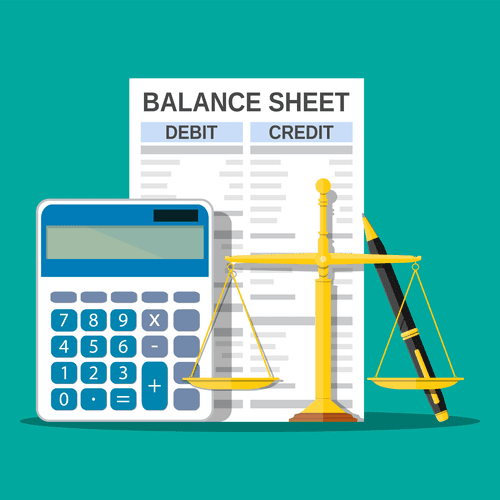Content

Competitive businesses require more equity and less financial leverage than monopoly businesses. With debt financing, the interest payments are tax-deductible, regardless of whether the interest charges are from a loan or a line of credit. When business owners need to buy something that they don't have the cash to pay for upfront, they can use either debt or equity to finance that purchase. Financial leverage which is also known as leverage or trading on equity, refers to the use of debt to acquire additional assets. When you use leverage, there is an actual cash disbursement for specific purposes. However, the strategy is used to achieve a similar outcome and you're using someone else's money to obtain an asset with the hope of increasing your return.

Using equity financing instead of leverage would mean offering partial ownership in the company in exchange for help purchasing something. Borrowing funds in order to expand or invest is referred to as "leverage" because the goal is to use the loan to generate more value than would otherwise be possible. "Let's say the value of the stock rose 30%, and https://www.bookstime.com/ you sold the stock for $13,000," says Stivers. For instance, if you take out a loan to invest in a side business, the investment you pour into your side business helps you earn more money than if you didn't pursue your venture at all. Leverage also works for investors in bolstering their buying power within the market — which we'll get to later.
AccountingTools
This includes automatic payroll deductions to fund a 401, or money you funnel into a regular brokerage account each month. In some cases, you may choose to borrow money to make a larger investment. Borrowing a lump sum can help you build your investment portfolio faster. You'll need funding to complete the purchase and all the necessary repairs and upgrades, which will determine your asking price when you're ready to sell. Unless you've got cash on hand to cover the purchase, you'll have to take out a loan to buy an investment property.

Until you have experience—and can afford to lose money—leverage, at least when it comes to investing, should be reserved for seasoned pros. Professional investors and traders take on higher levels of leverage to more efficiently use the money they have to invest. If the value of your shares fall, your broker may make a margin call and require you to deposit more money or securities into your account to meet its minimum equity requirement. It also may sell shares in your margin account to bring your account back into good standing without notifying you. A higher value of leverage signifies that a company has more debt than equity. INVESTMENT BANKING RESOURCESLearn the foundation of Investment banking, financial modeling, valuations and more.
Terms Similar to Financial Leverage
The volatility of the equity is equal to the volatility of oil, since oil is the only asset and you own the same amount as your equity, so economic leverage is 1 to 1. On the other hand, losses are also multiplied, and there is a risk that leveraging will result in a loss if financing costs exceed the income from the asset, or the value of the asset falls. Leverage can be used in short-term, low risk situations where high degrees of capital are needed. For example, during acquisitions or buyouts, a growth company may have a short-term need for capital that will result in a strong mid-to-long-term growth opportunity.

It is calculated by dividing total earnings or total net income by the total number of outstanding shares. The higher the earnings per share , the more profitable the company is.
Risks of Financial Leverage
Leverage may amplify losses and gains when the returns on the asset outweigh the borrowing expenses. According to those figures, Lehman had a 16.1 percent "net leverage ratio" and $373 billion in "net assets." Due to off-balance sheet transactions, banks' notional leverage was more than double as significant. The amount of assets supported in stock or equity-like securities is a capital requirement. With high risk and invests the remainder in a low-risk money-market fund, they may have the same volatility and anticipated return as a shareholder in an unhedged low-risk stock fund.
Equity refers to the shareholder’s equity plus the amount of retained earnings . The Structured Query Language comprises several different data types that allow it to store different types of information... Levering has come to be known as "leveraging", in financial communities; this may have originally been a slang adaptation, since leverage was a noun.
The Struggles of Private Company Accounting
If you buy on margin and your investment performs badly, the value of the securities you’ve purchased can decline, but you still owe your margin debt—plus interest. Leverage is nothing more or less than using borrowed money to invest. Leverage can be used to help finance anything from a home purchase to stock market speculation. Businesses widely use leverage to fund their growth, families apply leverage—in the form of mortgage debt—to purchase homes, and financial professionals use leverage to boost their investing strategies. Leveraged finance is used by companies to acquire an asset, repurchase shares, make an acquisition or buy-out another company. This debt is used to grow the company or raise capital to invest in another asset. The form of debt can be a leveraged loan, which tends to carry high interest as it is a riskier investment.
Fitch Affirms Oracle's IDR at 'BBB'; Outlook Negative - Fitch Ratings
Fitch Affirms Oracle's IDR at 'BBB'; Outlook Negative.
Posted: Thu, 02 Feb 2023 12:39:00 GMT [source]
Refers to the borrowing of money to make purchases with the expectation that future earnings would be much greater than the cost of borrowing. The value of a leveraged investment is greater than the value of the original capital contributed by the investor. When leveraging an investment, the potential gains are greater than they would be without leverage. In finance, leverage refers to using borrowed capital or financial derivatives to magnify the results of an investment.
Example of leverage in investing
If you're seeking a loan or line of credit, your credit score is critical. The stronger financial leverage your score, the more likely you'll be to get approved with the best rates and terms.
What does 70% leverage mean?
The appropriate level of gearing for a company depends on its sector and the degree of leverage of its corporate peers. For example, a gearing ratio of 70% shows that a company's debt levels are 70% of its equity.

